Custodial and Non-Custodial NFT marketplace
As an NFT enthusiast, you might be wondering what the difference is between custodial and non-custodial NFT marketplaces. In this comprehensive guide, we’ll break down everything you need to know about both types of platforms so you can make an informed decision about where to put your money.
We’ll cover the benefits and drawbacks of each type of marketplace, as well as some key differences between them. By the end of this post, you’ll have a clear understanding of which type of platform is right for you. So let’s get started!
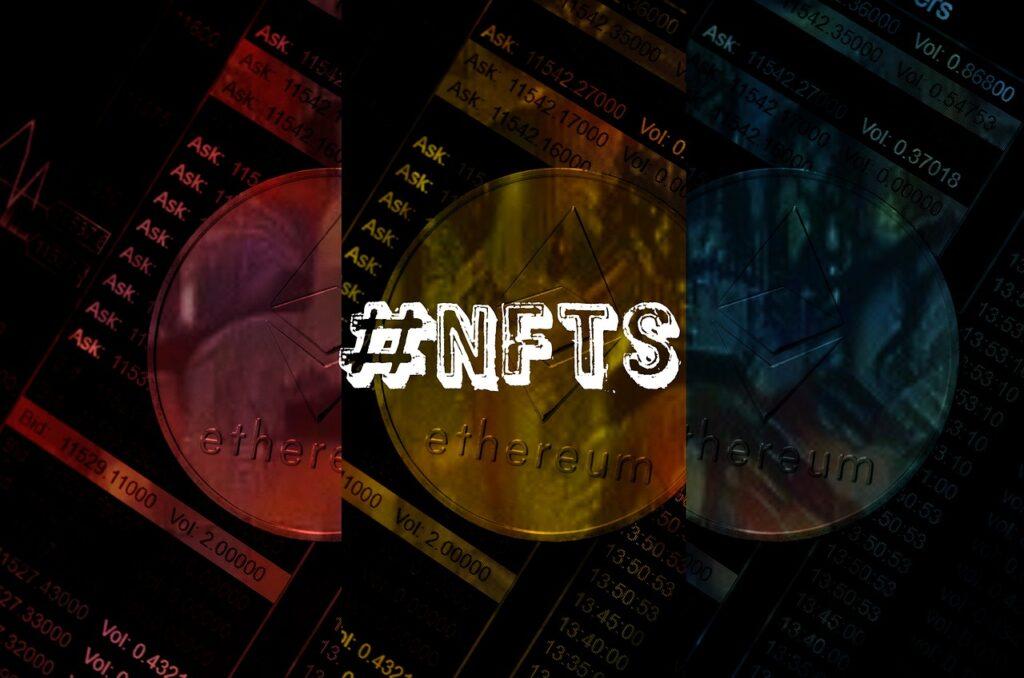
What the difference is between custodial and non-custodial NFT marketplaces?
The fundamental difference between a custodial and non-custodial marketplace is who has control of the assets on your platform. In one, you’ll find that only those authorized by its operators can access them in another, it’s available to everyone for free unlimited usage with no restrictions whatsoever! We’ll explore this concept more in-depth below.
1. Custodial NFT marketplace
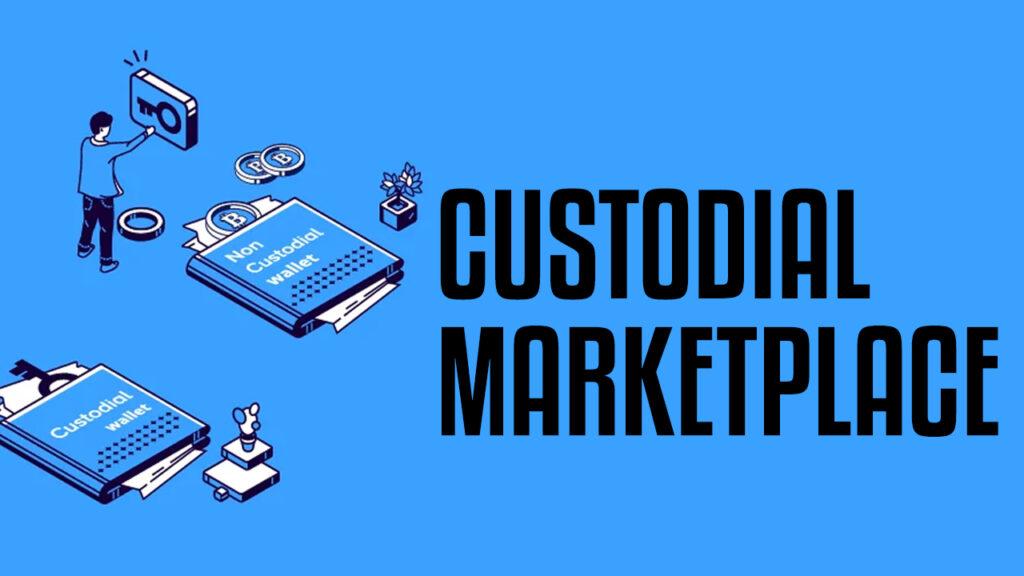
A custodial NFT marketplace keeps your wallet’s private key and holds the NFT in custody. In other words, a safe place for you to store all of those digital assets without worrying about hackers or malware taking advantage!
The Binance exchange is an excellent example because it requires users to create accounts before they can trade on their platform- which means there are more eyes watching over our funds unlike other less security-conscious websites out there.
A custodial NFT marketplace has total control over your NFTs and can modify your account at any time, as well as needing your permission to transfer them.
Ups and Downs of a custodial NFT marketplace
- custodial service is a simple way to match NFT buyers and sellers that’s easy for newcomers.
- There’s no need to worry about losing your key, which will make even more experienced users feel relief from the stress of forgetting it at home or sending keys through traditional means like physical mail (or worse yet- lost in cyberspace!).
- The user interface strives towards being friendly so mistakes can be made without feeling too discouraged! If anything goes wrong with an order though; don’t fret because there was probably help available right around the corner ready just waiting until somebody needed them most.
- The idea of storing your assets with a third-party service is not ideal for those who want full control over their funds.
- There have been cases where hackers were able to steal user information, and we can’t predict how often this will happen in the future given recent events across Europe with regretful consequences
- The KYC (Know Your Customer) process requires personal details such as name/address etc., which might be difficult if you’re trying to maintain anonymity while trading crypto’s
2. Non-custodial NFT marketplace
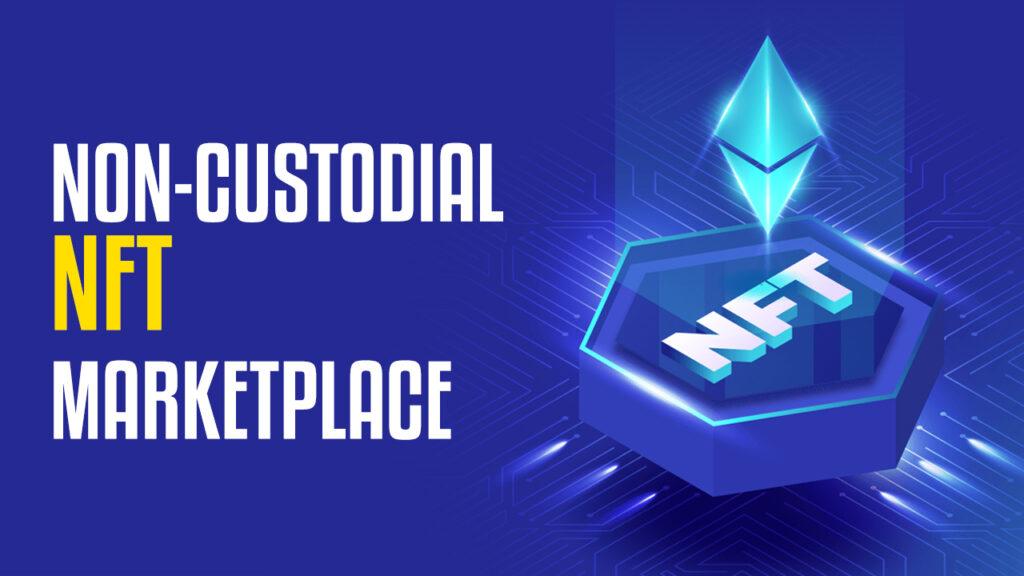
The NFT marketplace allows you to trade your favourite digital objects with complete ownership and control of the wallet at all times. As a user, this eliminates third party involvement because it uses smart contracts for any transaction that takes place on their site!
Ups and Downs of a non-custodial NFT marketplace
- Non-custodial NFT platforms allow you to trade directly from your wallet without an intermediary, which means cheaper fees and more privacy. However this depends on the network that’s being used for trading–if KYC checks are required by law then it may be necessary in order to protect against money laundering or other illegal activities like fraud, but if they aren’t there isn’t much reason why someone wouldn’t want their identity revealed when buying crypto assets!
- One of the downsides to non-custodial control is that it can be less user friendly and convenient than custodial ones. However, service providers like Torus are making dapp ( decentralized applications) easier for everyone!
Why there is a non-custodial NFT marketplace craze?
The main advantage of non-custodial NFT marketplaces is that they give their users full control over how much money can be made from transactions. The creator doesn’t have any worries about his or her creations being taken away because it’s all done on private keys which only belong to oneself!
Non-custodial NFT markets are the perfect way to trade assets without providing any identification. In other words, you can create or sell things like unique digital tokens that represent something and not have proved who you are because they don’t ask for anything but your asset!
What are the best non-custodial NFT marketplaces to mint NFTs?
1. AirNFTs
The security of AirNFTs is entirely non-custodial, which means that we do not have access to manipulate or transfer your NFT. Instead, the wallets own them and no one else can manage it for you! This way has more benefits than just being secure: by owning his/her own property in this marketplace collectors feel as if they’re playing with real money while artists get an opportunity at greater exposure without any risk because everything happens off-site.
To know more Click Here.
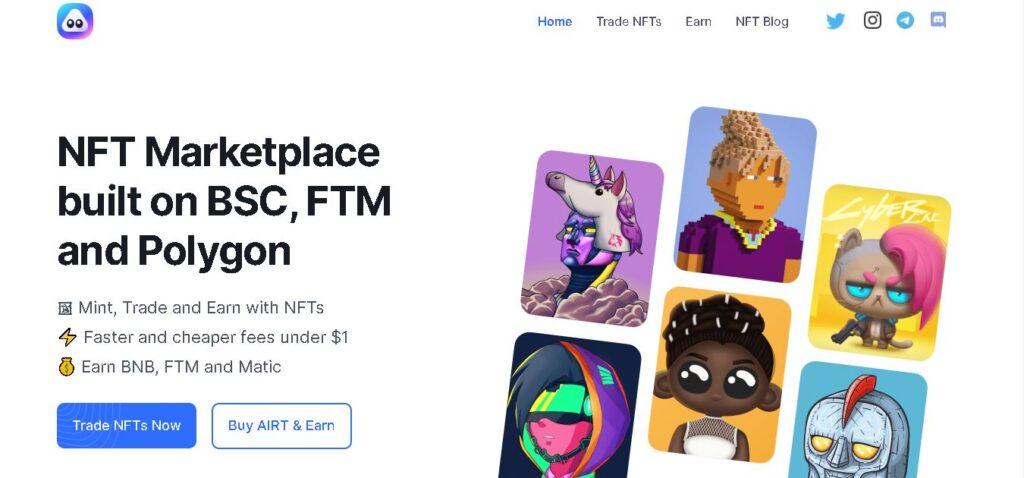
2. OpenSea
OpenSea is a platform that allows NFTs to be traded between users. Your assets are never transferred outside of your wallet until they’re sold because Opensea doesn’t execute any purchases or sales–and it certainly doesn’t control the blockchains where you interact with these platforms!
To know more Click Here.
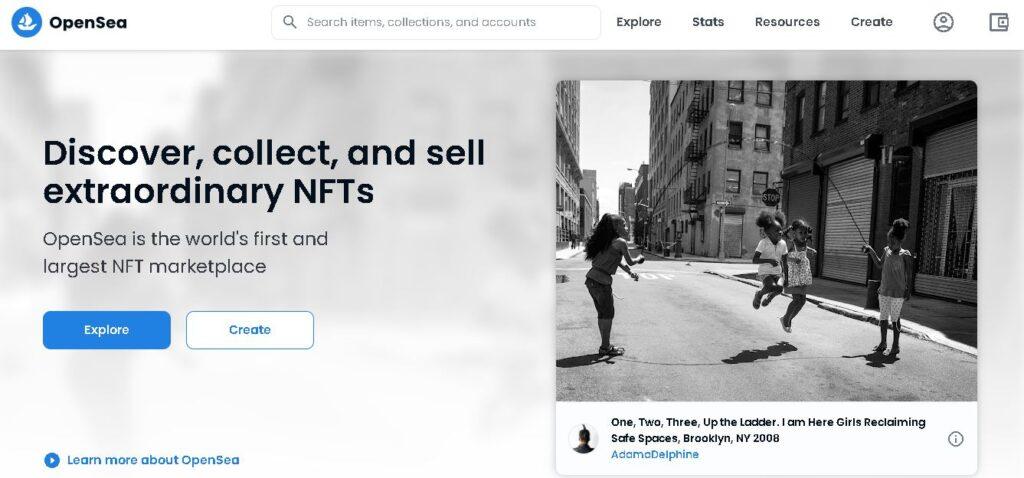
3. SuperRare
The SuperRare marketplace is a secure and transparent peer-to-peer trading platform where users can buy or sell cryptocurrencies in complete anonymity.
To know more Click Here.
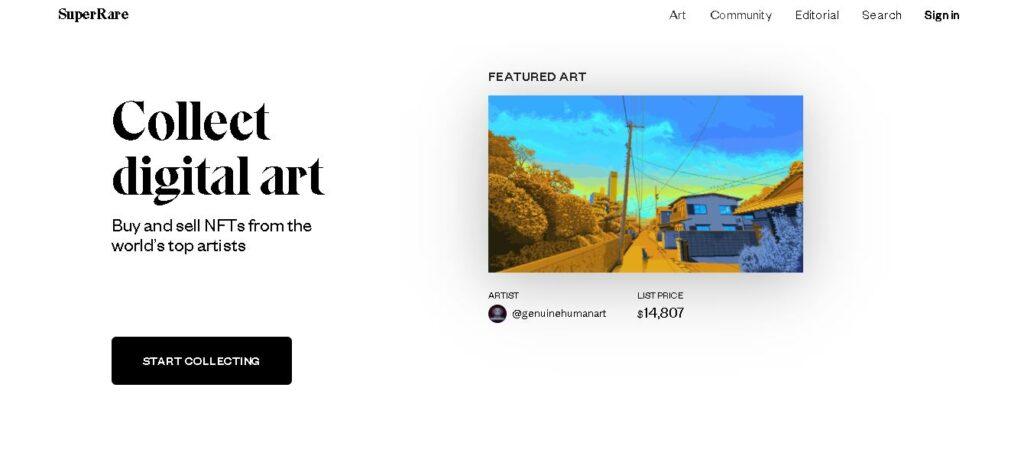
4. Foundation
Foundations don’t take custody of your NFTs, instead, it’s an online marketplace where buyers and sellers can connect. To store these new tokens on the platform you will need to use a web3 wallet such as MetaMask or Trust Wallet.
To know more Click Here.
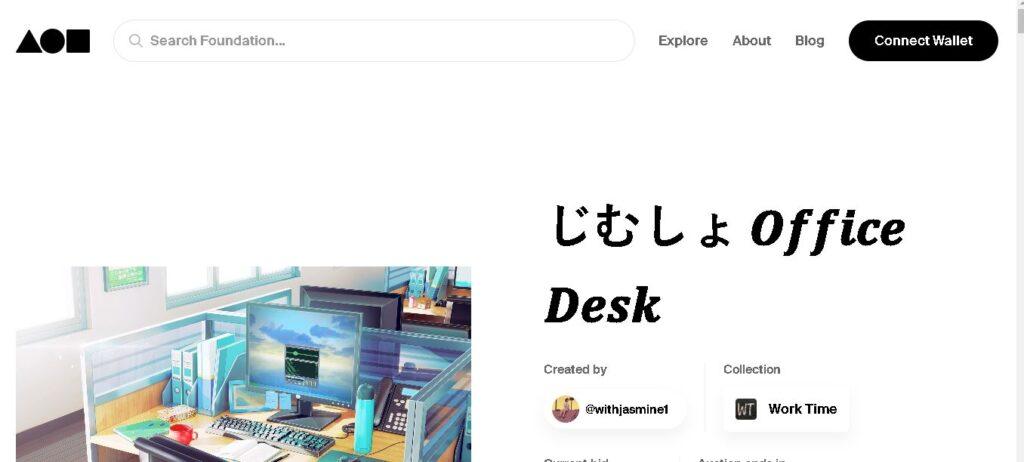
5. Rarible
When a sale occurs on Rarible’s NFT marketplace, the smart contract you agreed to when listing your item activates and removes it from your wallet. Your funds are returned in exchange for removing this auctioned off an object (and getting paid!).
To know more Click Here.
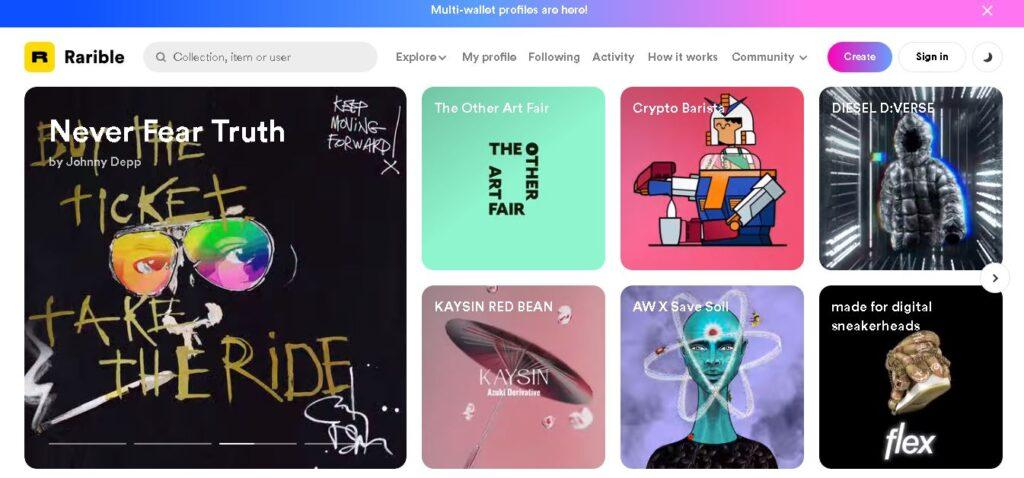
What to select Custodial or Non-custodial NFT marketplace?
There are a number of NFT marketplaces out there, but how do you know which is right for your needs? The answer lies in understanding the key differences between custodial and non-custody based platforms.
If security measures sound important to protect yourself against hacks or scammers then go with an AirNFT on Binance Smart Chain (BSC), Polygon as well Fantom(Fantom). However, if total control over one’s assets sounds more valuable than having them managed by third-party services – consider managing them through our platform!
Custodial NFT platforms provide more security and autonomy for less experienced users. For those who want to focus on interacting with the platform, a custodian service might be your best bet – like Binance’s marketplace!
So, which type of platform should you choose? Well, that depends on what’s important to you. If security and trust are your top priorities, then a custodial marketplace is the way to go. But if you value freedom and flexibility more than anything else, a non-custodial marketplace is the better option.
No matter which one you choose, make sure to do your research and read reviews from other users before investing. We hope this guide has helped shed some light on the world of NFT marketplaces and given you a better understanding of what each type has to offer. Happy trading!
Few of the most anticipated projects are set to trend this year Click Here!
we’ve done our best to compile a list of some of the most influential and informative blogs out there when it comes to NFTs Click Here!

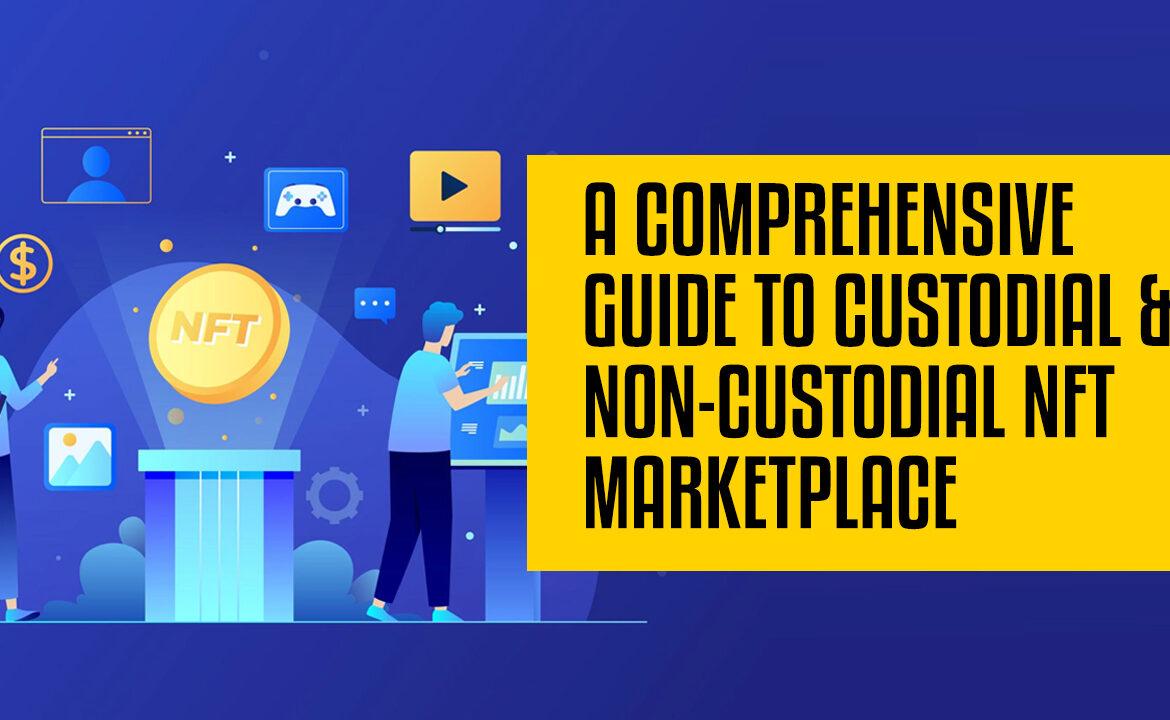
1 thought on “Custodial and Non-Custodial NFT marketplace”